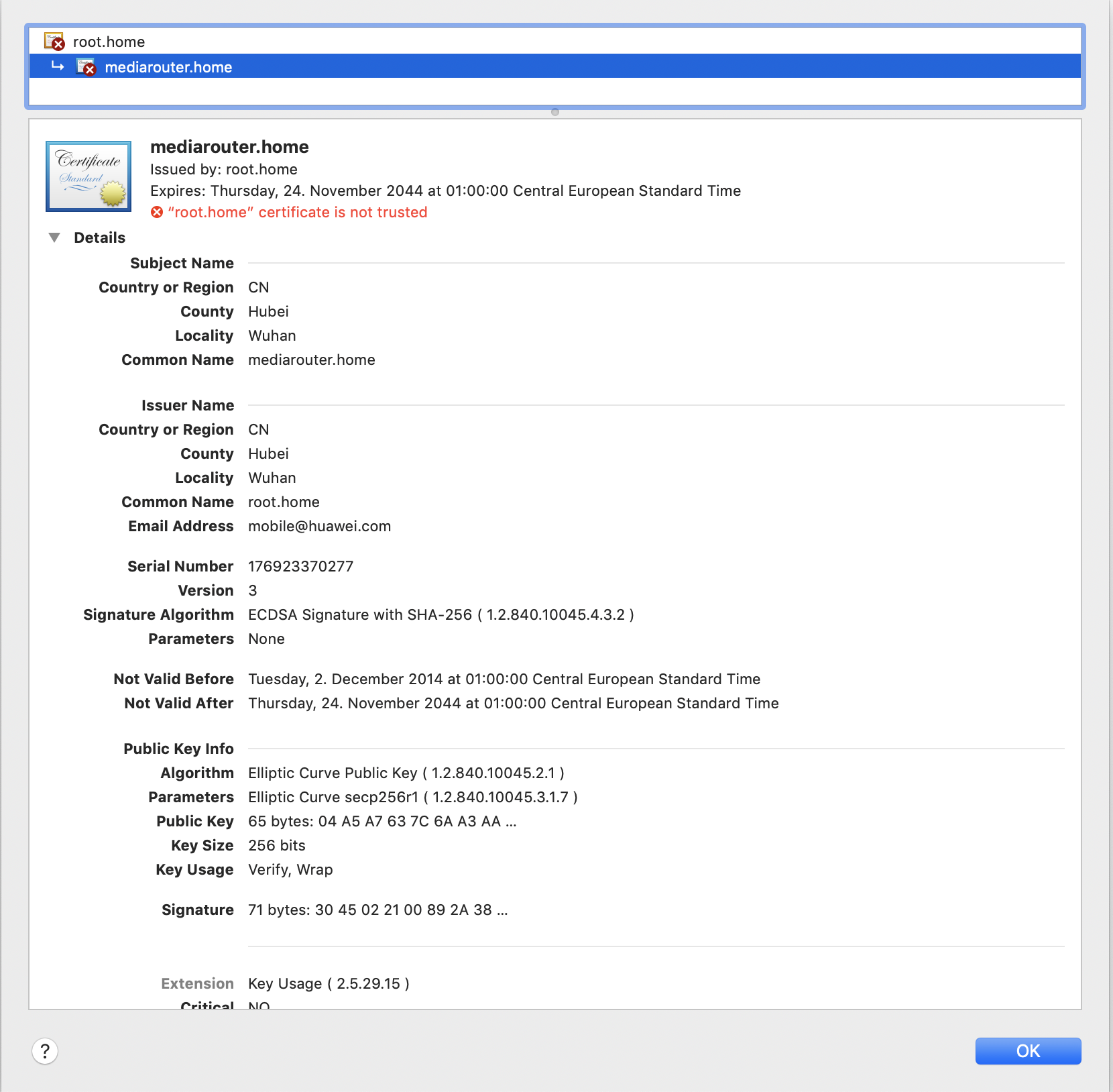While it is the typical case of https eavesdropping, most likely there is no malicious intent in the background.
For example, the router can provide some web filtering or other defense for you with it.
Furthermore, it is impossible to be done without your consent: the manufacturer can't create such SSL certificates to the domains you visit, what are commonly accepted by all the browsers you use. You will surely see the warnings of your browsers due to failed certs.
On this reason, doing this for malicious purposes is practically impossible by router manufacturers.
I think it is more likely that you switched some content-based web filtering function of the router on, but did not read the docs saying, how to import the certs of the router into your browser (requires typically many clicks).
Check the router docs, and turn this off. From a router manufacturer, I want a router, not a virus filter.


mediarouter.homeand not the site you were trying to visit this looks more like a captive portal than TLS interception. Does the router redirect you somewhere if you visit a site without TLS such as neverssl.com?